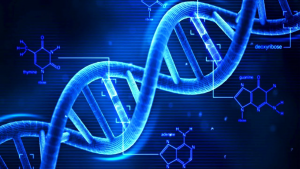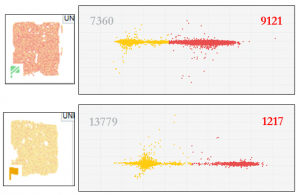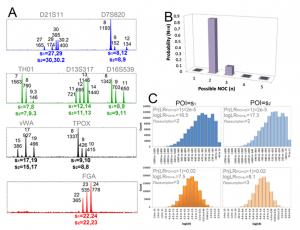Graduates of LFTDI acquire the technical expertise to become a member of myriad laboratory environments and will be qualified to apply for positions such as forensic DNA analyst, research assistant or associate, production analyst, forensic biologist, QA/QC forensic specialist and clinical laboratory technician. For more information visit current Job Posting websites:
FORENSIC SCIENCE CAREERS
Explore the Forensic DNA Laboratory Unit. Made available by the Denver Police.
To Join LFTDI:
Students should be enrolled in the Department of Chemistry, Program in Forensic Science or the Center for Computational and Integrative Biology (CCIB) at Rutgers University, Camden. They should have a strong background in Biochemistry, Instrumental Analysis, Biomedical Engineering, Statistics or Computational Biology.
In addition, we seek students who have or will have completed the four DAB (DNA Advisory Board) courses: 1) Biochemistry; 2) Statistics or Population Genetics; 3) Molecular Biology and; 4) Genetics.
CLICK HERE TO APPLY TO M.S. CHEMISTRY, M.S. FORENSIC SCIENCE OR Ph.D. COMPUTATIONAL INTEGRATIVE BIOLOGY
LFTDI uses a structured and immersive three-tier training approach, where our students become proficient in advanced forensic bio-analytical techniques over the course of their B.S., M.S. or Ph.D.
Tier 1: The Basics

Student trainees will learn the basics of forensic DNA testing and analytical approaches in the Forensic and Analytical Molecular Biology (56:115:530, 3 credits) course. They will be learn the entire forensic laboratory process and will be introduced to pertinent standards related to the field. Exercises include exploration of DNA signal and the effects on the strength of a DNA match. By the end of this tier the student will have acquired a fundamental understanding of the laboratory system.
Tier 2: Learning and Doing

The student will engage with LFTDI Team Leaders and begin their in-laboratory or analytics training. We utilize the same training approach as working forensic laboratories. At the end of Tier 2., students will have observed the relevant techniques, performed the techniques and will have passed a proficiency test demonstrating their aptitude for the technique(s). All is recorded in the student’s training folder.
Tier 3: Writing and Knowing

Students will become engaged in independent inquiry relating to a specific project. Training in statistical, analytical, computational techniques, and science communication continues under this Tier in close consultation with Team Leaders and long-run collaborators.


 Student trainees will learn the basics of forensic DNA testing and analytical approaches in the Forensic and Analytical Molecular Biology (56:115:530, 3 credits) course. They will be learn the entire forensic laboratory process and will be introduced to pertinent standards related to the field. Exercises include exploration of DNA signal and the effects on the strength of a DNA match. By the end of this tier the student will have acquired a fundamental understanding of the laboratory system.
Student trainees will learn the basics of forensic DNA testing and analytical approaches in the Forensic and Analytical Molecular Biology (56:115:530, 3 credits) course. They will be learn the entire forensic laboratory process and will be introduced to pertinent standards related to the field. Exercises include exploration of DNA signal and the effects on the strength of a DNA match. By the end of this tier the student will have acquired a fundamental understanding of the laboratory system. The student will engage with LFTDI Team Leaders and begin their in-laboratory or analytics training. We utilize the same training approach as working forensic laboratories. At the end of Tier 2., students will have observed the relevant techniques, performed the techniques and will have passed a proficiency test demonstrating their aptitude for the technique(s). All is recorded in the student’s training folder.
The student will engage with LFTDI Team Leaders and begin their in-laboratory or analytics training. We utilize the same training approach as working forensic laboratories. At the end of Tier 2., students will have observed the relevant techniques, performed the techniques and will have passed a proficiency test demonstrating their aptitude for the technique(s). All is recorded in the student’s training folder. Students will become engaged in independent inquiry relating to a specific project. Training in statistical, analytical, computational techniques, and science communication continues under this Tier in close consultation with Team Leaders and long-run collaborators.
Students will become engaged in independent inquiry relating to a specific project. Training in statistical, analytical, computational techniques, and science communication continues under this Tier in close consultation with Team Leaders and long-run collaborators.